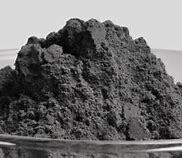1. Introduction
Titanium powder—often referred to as ti powder—is a versatile material used across aerospace, medical implants, and additive manufacturing. But with so many variants like pure titanium powder, ti6al4v powder (also called ti64 powder), and specialty forms like titanium nitride powder or tio2 nano powder, choosing and using the right type can be overwhelming. Add in concerns about titanium powder price, safety, and compatibility with processes like 3D printing, and it’s easy to get lost. This practical guide breaks down exactly how to handle, select, and buy titanium powder safely and effectively.

2. Understand the Different Types of Titanium Powder
Not all titanium powders are created equal. The form you need depends heavily on your application. For example, titanium powder for 3d printing typically requires spherical titanium powder made via gas atomized titanium powder methods to ensure smooth flow and dense part formation. In contrast, hdh titanium powder (hydride-dehydride) is angular and more cost-effective for pressing and sintering but not ideal for additive manufacturing. Common grades include pure titanium powder (Grade 1 or 2) and titanium alloy powder like ti6al4v powder, widely used in aerospace and biomedical fields. Other specialty powders—such as titanium carbide powder, titanium diboride powder (tib2 powder), and titanium boride powder—are used in cutting tools and wear-resistant coatings. Don’t confuse these with tio2 powder (titanium dioxide), which is a white pigment used in cosmetics and sunscreens, not metal fabrication.
3. Prioritize Safety When Handling Titanium Dust
Titanium powder is highly reactive in fine form and can be pyrophoric—meaning it may ignite spontaneously in air, especially if particle size is under 45 microns. Always treat titanium dust as a fire and explosion hazard. Work in a controlled environment with inert gas (like argon or nitrogen), avoid open flames or sparks, and use grounded equipment. Store in sealed, non-reactive containers away from oxidizers. Never use water to extinguish a titanium fire—it can worsen the reaction. Instead, use Class D fire extinguishers designed for combustible metals. Proper PPE, including respirators and flame-resistant clothing, is essential.
4. Choose the Right Powder for Your Application
If you’re into additive manufacturing, focus on spherical titanium powder with high purity and consistent particle size distribution (typically 15–45 µm). Ti6al4v powder is the go-to for titanium powder additive manufacturing due to its strength-to-weight ratio and biocompatibility. For metallurgical research or sintering, hdh titanium powder may suffice and is often cheaper. Need high hardness? Consider titanium carbide or titanium nitride powder. For catalytic or photocatalytic uses, tio2 nano powder is appropriate—but it’s chemically distinct from metallic ti powder. Also, avoid confusing titanium flash powder (a pyrotechnic mix) with industrial-grade titanium metal powder—it’s not the same and is extremely dangerous without proper expertise.
5. Compare Titanium Powder Price and Suppliers
Titanium powder price varies widely based on form, purity, and production method. As of 2024, titanium powder price per kg ranges from $100–$500+, with ti6al4v powder price often at the higher end. Titanium powder for 3d printing price is typically more than standard hdh powder due to the cost of gas atomization. When you buy titanium powder, compare quotes from reputable titanium powder suppliers like international titanium powder vendors or specialized additive manufacturing material providers. Always request certificates of analysis (CoA) for oxygen content, particle size, and flowability—critical for 3d printing titanium powder performance. Beware of unusually low titanium powder cost; it may indicate contamination or incorrect alloy composition.
6. Know How Titanium Powder Relates to Other Metal Powders
In many industrial contexts, titanium powder is used alongside other refractory metal powders. For instance, molybdenum powder (including moly powder, molybdenum disulfide powder, and tzm powder) is valued for high-temperature stability, while tungsten powder and tungsten carbide powder offer extreme density and wear resistance. Though not interchangeable, these materials often appear in the same supply chains. If you’re sourcing titanium powder for sale, you might also explore molybdenum powder suppliers or tungsten powder suppliers like Global Tungsten & Powders Corporation for complementary materials. Note that molybdenum disulfide powder uses include lubrication, while tungsten carbide powder uses span cutting tools and thermal spray coatings.
7. Where and How to Buy Titanium Powder Legally and Safely
Before you buy titanium powder, verify export controls—titanium metal powder is regulated in many countries due to its use in defense and aerospace. Ensure your supplier complies with ITAR or EAR regulations if applicable. Reputable sources include certified titanium powder suppliers with ISO certifications and experience in additive manufacturing. Look for terms like ‘titanium powder for sale’ with clear specs: purity, particle morphology (spherical vs. irregular), and alloy grade. Avoid informal marketplaces; instead, go through industrial material distributors or direct manufacturers. Also, confirm whether the powder is dry moly powder-free or contains additives—purity matters for sintering and printing.
8. Conclusion
Working with titanium powder demands knowledge, caution, and the right sourcing strategy. Whether you’re using ti64 powder for medical implants or exploring tio2 nano powder for coatings, understanding the differences, safety protocols, and market pricing is crucial. Always prioritize certified suppliers, verify material specs, and never compromise on safety when handling reactive titanium dust. With this guide, you’re equipped to make informed decisions—whether you’re comparing titanium powder price per kg or integrating titanium powder into advanced manufacturing workflows.
Our Website founded on October 17, 2012, is a high-tech enterprise committed to the research and development, production, processing, sales and technical services of ceramic relative materials such as 7. Our products includes but not limited to Boron Carbide Ceramic Products, Boron Nitride Ceramic Products, Silicon Carbide Ceramic Products, Silicon Nitride Ceramic Products, Zirconium Dioxide Ceramic Products, etc. If you are interested, please feel free to contact us.
